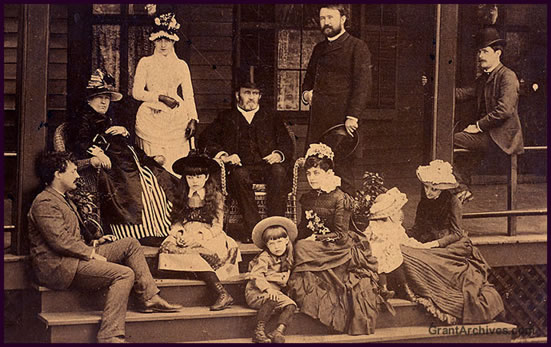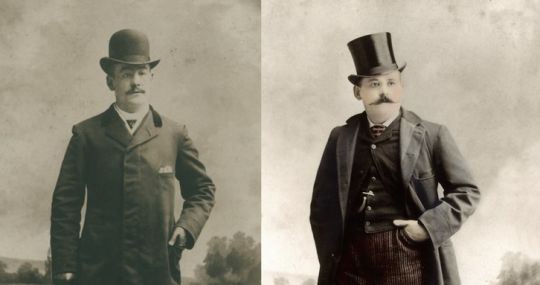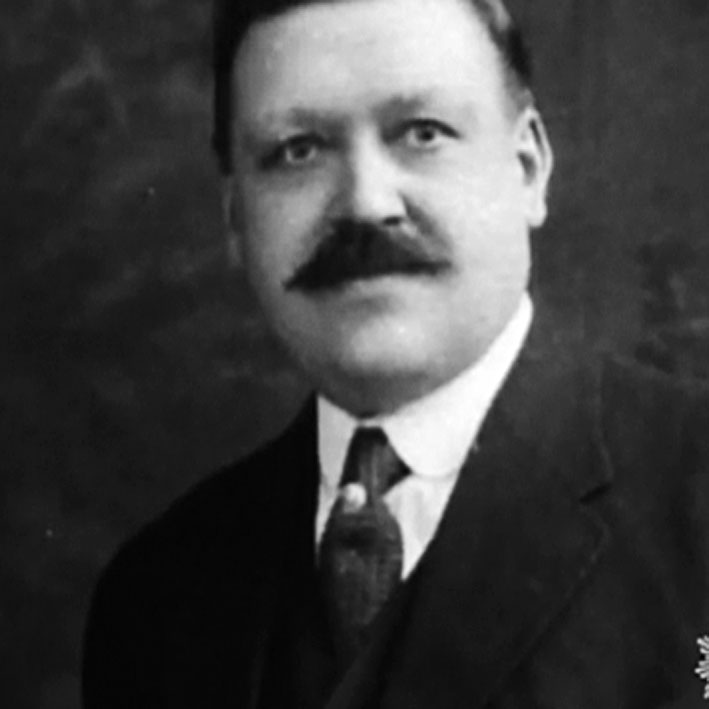July 23, 1950 -
The Singing Cowboy Gene Autry's series The Gene Autry Show, co-starring Pat Buttram, sponsored by Wrigley's Doublemint Gum, premiered on CBS-TV, on this date.
Two-thirds of the way through the first season's production, Pat Buttram was severely injured in an explosion and was hospitalized for several months. In order to complete the production run, his sidekick role was filled in the remaining episodes by Chill Wills, Fuzzy Knight and Alan Hale Jr.. Wills and Knight wore the same costume as Buttram so that long shots of stock footage could be easily used, but there was no disguising Hale's bulk - he wore his own distinctive clothing.
July 23, 1955 -
Chuck Berry's first single, Maybellene was released on this date.
Chess Records gave the disc jockey Alan Freed a co-writing credit on this song (and also some cash) in exchange for playing it on the radio. Deals like this led to the Payola scandals, which led to rules prohibiting record companies from paying DJs to play their songs. Marshall Chess, the son of Chess founder Leonard Chess, recalled to The Independent newspaper May 27, 2008: "He [Freed] played the hell out of Chuck's first record, 'Maybellene', because of that. My father says he made the deal, and by the time he got to Pittsburgh, which was half a day's drive away, my uncle back at home was screaming, 'What's happening? We're getting all these calls for thousands of records!'"
July 23, 1962 –
Telstar relayed the first publicly transmitted, live, trans-Atlantic television program, featuring CBS’s Walter Cronkite and NBC’s Chet Huntley in New York, and the BBC’s Richard Dimbleby in Brussels.
The first broadcast was intended to have been remarks by President John F. Kennedy, but the signal was acquired before the president was ready, so the lead-in time was filled with a short segment of a televised game between the Philadelphia Phillies and the Chicago Cubs at Wrigley Field. Although no longer functional, Telstar remains in orbit.
July 23, 1966 -
Frank Sinatra's song Strangers in the Night, hits the top of the charts on this date.
This was a big comeback song for Sinatra, becoming his first #1 pop hit in 11 years. His previous chart-topper was Learnin' The Blues in 1955.
July 23, 1979 –
Electric Light Orchestra dedicated the release, on this date, of the single Don’t Bring Me Down from their album Discovery to Skylab which had crashed back to Earth on July 11, 1979. (The song is the first ELO song without any strings.)
Don't Bring Me Down became the biggest hit ELO ever had on their own in the U.S., topped only by a collaborative single with Olivia Newton-John on Xanadu, from the 1980 movie of the same name.
July 23, 1982 -
Warner Bros. released George Roy Hill's adaptation of John Irving's novel, The World According to Garp, starring Robin Williams, Mary Beth Hurt, Glenn Close, and John Lithgow, on this date.
Glenn Close plays Robin Williams's mother, yet she is only four years older than him. Similarly, Close and actress Mary Beth Hurt played women from successive generations yet in real life they are only one year apart in age.
July 23, 1983 -
The Police kicked off the North American leg of their 107-date Synchronicity world tour at Comiskey Park (now rebuilt as U.S. Cellular Field) in Chicago, on this date. Co-incidentially, their fifth and last album, Synchronicity, hits #1 on the Billboard Charts on this date.
The album gained its title from Carl Gustav Jung’s book Synchronicity. The word by definition means unconnected events that have a causal connection. That definition really informs the overall concept of the album with each song being so individual yet each song fit like a puzzle piece that once connected created a total picture.
July 23, 1984 -
The Cars released the song Drive from their Heartbeat City album on this date. The song goes on to become The Cars' highest charting single where it peaked at No.3 on the US chart.
The video was directed by a 23-year-old Timothy Hutton, who had won the Oscar for Best Supporting Actor for his role in the movie Ordinary People. Hutton aspired to direct, so when Ric Ocasek of The Cars suggested he do it, Hutton jumped at the chance. Hutton cast the Czechoslovakian model Paulina Porizkova as the female lead in the clip. Auditioning for the role was the first time she met Ocasek, whom she married in 1989.
July 23, 1987 -
Columbia Pictures released the biopix about Richie Valens, La Bamba, starring Lou Diamond Phillips, Esai Morales, Rosanna DeSoto, and Elizabeth Peña, on this date.
Ritchie Valens' family were so attached to Lou Diamond Phillips that when he was shooting the scene where Valens gets on the airplane that led him to his death, the family begged Phillips not to get on, fearing that he would die. The family was warned not to come to the filming the day that they filmed him getting on the plane but his sister ignored this and drove up to the set anyways. She cried, hugged him and begged him not to get on the plane.
July 22, 1993 -
John Singleton's drama, Poetic Justice, starring Janet Jackson and Tupac Shakur, opens in US theatres on this date.
According to director John Singleton, when the 1992 Los Angeles riots occurred during filming, Tupac Shakur left the set to participate in the protest. He returned to the set in time for filming.
July 23, 1996 -
Fiona Apple released her debut album, Tidal, on this date.
Fiona Apple typically works by writing songs that are extensions of her journals, baring her soul for all to hear in a process that can be years in the making. The song Criminal was atypical for her process: she claims she wrote the song in just 45 minutes to prove she could, and to give her record label (Work, a division of Sony) the hit song they were after. The album itself went on to sell over 3 million copies in America.
Today's moment of Zen
Today in History:
July 23, 776BC -
A very large number of sweaty, muscular men poured into Greece, shaved their entire bodies, oiled themselves up and ran naked through the streets on this date (and it wasn't even Greek Pride Day.)
The first Olympic Games opened in Olympia on this date.
July 23, 1848 -
Protesting slavery as well as the U.S. involvement in the Mexican War, Henry David Thoreau refused to pay his $1 poll tax and was arrested on this date in history. That night, a relative came by and paid Thoreau's poll tax.
When he was told he could leave, Thoreau objected and was threatened with force to remove him. His written account of the experience is later read by Leo Tolstoi, Marcel Proust, Mahatma Gandhi, Martin Luther King, Jr., Ernest Hemingway, Upton Sinclair, Sinclair Lewis and William Butler Yeats and it persuaded them to advocate civil disobedience.
July 23, 1885 -
One of the most famous residents of West 122th Street and Riverside Drive made a most fateful decision on this date.
He decided to give up the ghost.
In 1881, Ulysses S. Grant, American general, the eighteenth President of the United States and famous horseback riding drunk, purchased a house in New York City and placed almost all of his financial assets into an investment banking partnership with Ferdinand Ward, as suggested by Grant's son Buck (Ulysses, Jr.), who was having success on Wall Street. Very wrong move.
Ward swindled Grant (and other investors who had been encouraged by Grant) in 1884, bankrupted the company, Grant and Ward and fled. Ward had invented the Ponzi scheme before the term was invented.
Grant learned at the same time that he was suffering from throat cancer. Grant and his family were left destitute; at the time retired U.S. Presidents were not given pensions, and Grant had forfeited his military pension when he assumed the office of President. Grant first wrote several articles on his Civil War campaigns for The Century Magazine, which were warmly received. Mark Twain offered Grant a generous contract for the publication of his memoirs, including 75% of the book's sales as royalties.
Terminally ill, Grant finished the book just a few days before his death. The memoirs sold over 300,000 copies, earning the Grant family over $450,000. Twain promoted the book as "the most remarkable work of its kind since the Commentaries of Julius Caesar," and Grant's memoirs are also regarded by such writers as Matthew Arnold and Gertrude Stein as among the finest ever written.
Ulysses S. Grant died at 8:06 a.m. on Thursday, July 23, 1885, at the age of 63 in Mount McGregor, Saratoga County, New York. His last word was a request, "Water" (I'd like to believe it was actually, "Sir, cut my bourbon with water."
Grant's funeral was one of the greatest outpourings of public grief in history. A large funeral parade marched through New York City from City Hall to Riverside Park. It had 60,000 marchers, stretched seven miles, and took up to five hours to pass. Well over one million spectators witnessed the parade.
The funeral was attended by numerous dignitaries, including President Grover Cleveland, his cabinet, the justices of the Supreme Court, the two living ex-presidents (Hayes and Arthur), virtually the entire Congress, and almost every living figure who had played a prominent role during the Civil War.
Civil War veterans from both North and South took part, reflecting the high esteem in which he was held throughout a reunified country. General Winfield S. Hancock led the procession, and Grant's pallbearers included former comrades -- General William T. Sherman, General Philip H. Sheridan and Admiral David D. Porter - as well as former Confederates - Generals Joseph E. Johnston and Simon B. Buckner.
Completed in 1897, Grant's Tomb is the second largest mausoleum in North America (President Garfield's Memorial is the first).
July 23, 1886 -
New York saloonkeeper Steve Brodie claimed to have made a daredevil plunge from the Brooklyn Bridge into the East River on this date.
However, having the perfect new New York spirit, few historians believe the jump actually occurred
July 23, 1904 -
At the turn of the last century, ice-cream men were a breed apart. It was hard work making ice-cream and the rewards were few. "You don't choose ice cream," they said, "ice cream chooses you."
Well, Charles E. Menches was an ice-cream man. They say it ran in his veins. (They say forget the autopsy: they say you don't need actual ice-cream in your blood to have it in your veins.)
Charles E. Menches had always known he'd be an ice-cream man. Everyone had known. While other boys in St. Louis played stickball or jacks, little Chuckie experimented with different creams and salts. While other boys dreamed of being doctors or lawyers, little Chuckie dreamed of exotic flavor combinations like cinnamon-onion swirl and artichoke-pistachio.
Charles E. Menches' passion for ice cream was infectious. He made his brother Frank an ice-cream man. They began traveling to fairs and special events across the Midwest to sell ice cream from a tent. (Apparently, they also had a thing for hamburgers - the brothers also lay claim to having introduced the hamburger to the American public. But that's another story...)
They did what all ice-cream men did: they scooped their ice cream into bowls and sold it to their customers. People loved ice cream back then, just as they love it today. And why not? It was ice cream.
One sweltering day at the St. Louis World's Fair - July 23, 1904, to be precise--Charles E. Menches and his brother Frank sold so much ice cream that they ran out of dishes.
An ordinary ice-cream man might have folded up his tent and taken the rest of the day off. But not Charles E. Menches. Charles E. Menches knew the code of the ice-cream man. More than that, he lived it.
The people of St. Louis would not be denied their ice cream. Not if Charles E. Menches had anything to say about it.
The tent beside Charles and Frank's ice cream tent belonged to Ernest A. Hamwi, a Syrian pastry-maker who sold sweet wafer pastries called Zalabia. (Ernest A. Hamwi was what Syrians would call a Zalabia man, but they wouldn't say he had Zalabia in his veins. Syrians would never talk such tripe.)
In a moment of brilliant epiphany, Charles E. Menches bought all of Ernest A. Hamwi's Zalabia and rolled them into cones. He then began selling his ice cream in sweet wafer cones instead of dishes.
The ice cream cone was born.
(Sure, Italo Marchiony had received U.S. patent #746971 for the ice-cream cone seven months earlier in New York,
but Italo Marchiony had never been an ice-cream man.) Anyway, it beats the old system of cramming your mouth with as much ice cream as you could hold in it before suffocating.
July 23, 1966 -
The "longest suicide in Hollywood" finally came to a sad on this date, with the death of Montgomery Clift of a heart attack brought on by his severe drug and alcohol addictions.
After his near-fatal car accident in 1956, (in which, Elizabeth Taylor saved the actor from choking to death by removing two teeth lodged in his throat) Montgomery Clift stumbled through life in a haze of pain and professional disappointments. Clift still managed to turn in some amazing performances during this period
(Monty got a raw deal indeed.)
He is now the most famous 'resident' of Quaker Cemetery in Prospect Park Brooklyn.
July 23, 1984 –
Vanessa Williams became the first Miss America to resign when she surrendered her crown after (previously shot) nude photos of her appeared in Penthouse magazine.
Ms. Williams rebounded from the Miss America scandal and has gone on to a successful career as an actress and recording artist. And if you think I'm going to link to the photos in question, more fool you, bunkies.
And so it goes.









No comments:
Post a Comment